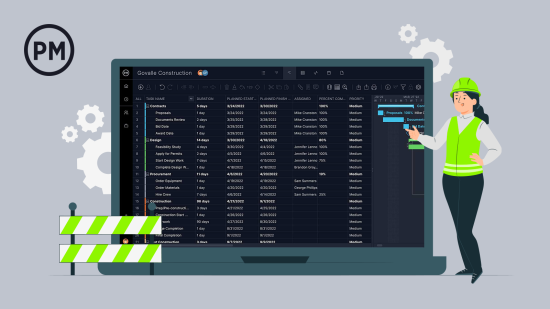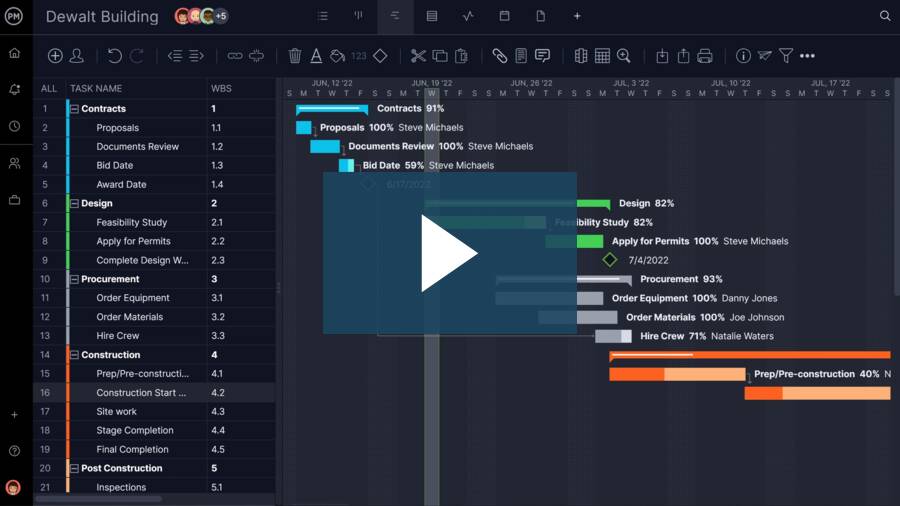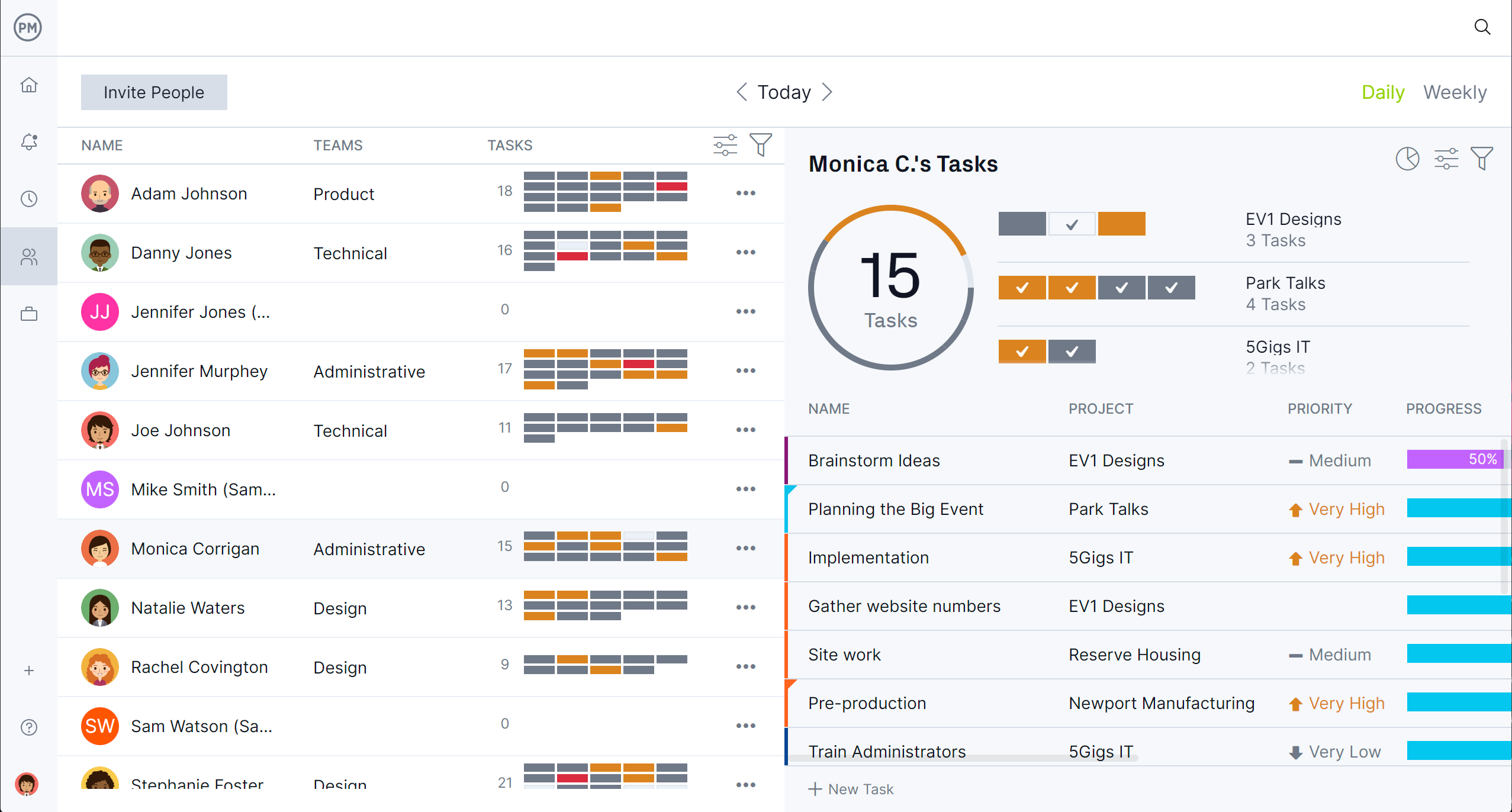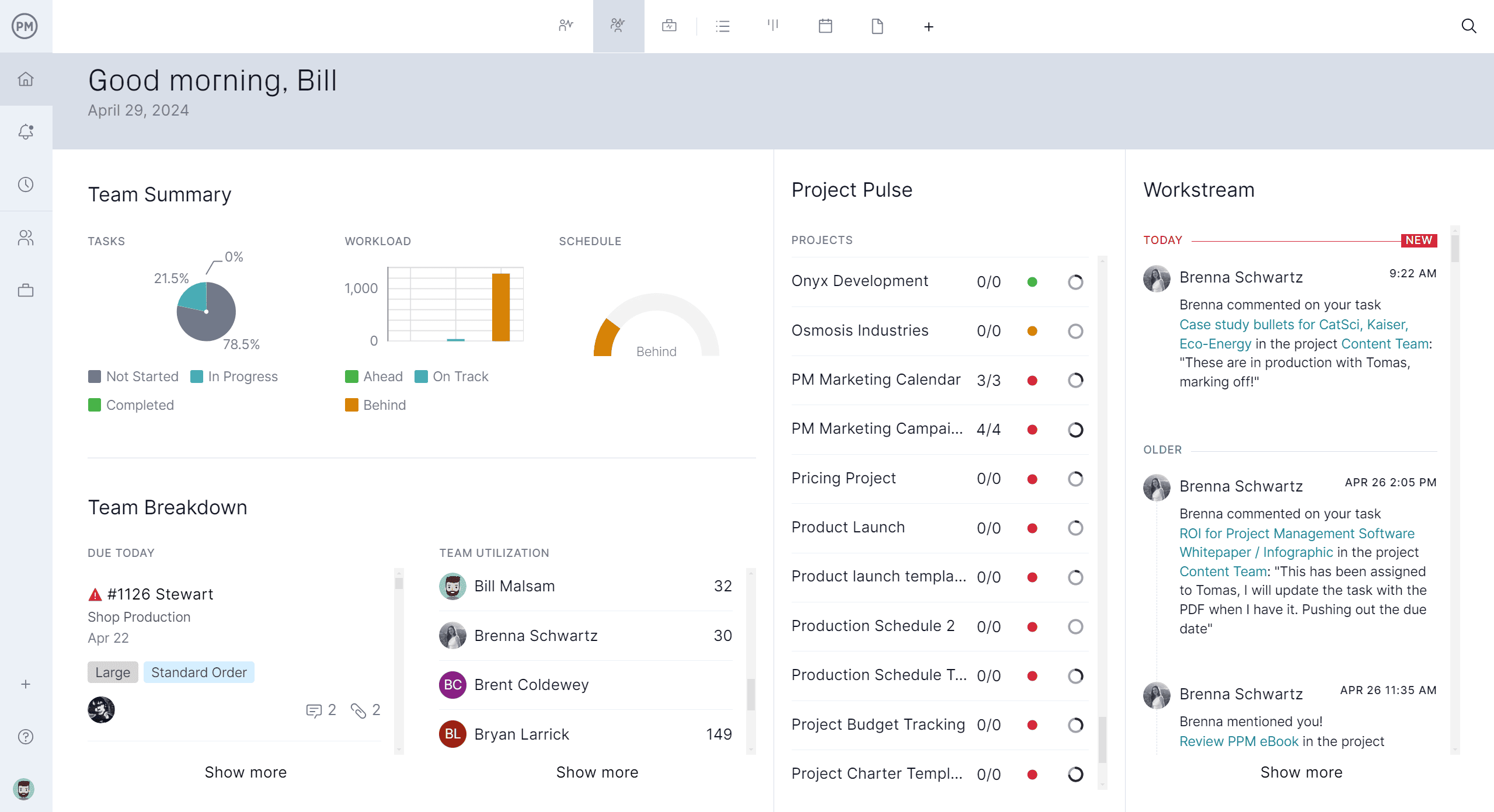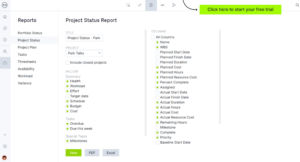Successfully managing construction projects requires careful planning, organization and execution. From securing funding to creating detailed construction plans, each step influences timelines, budgets and overall project success. Following a structured approach helps teams anticipate challenges, allocate resources efficiently and achieve project goals while maintaining quality and safety standards.
Whether you’re managing a small renovation or a large-scale development, these strategies provide clarity, reduce risks and improve communication among stakeholders. By understanding each phase of the project, you can make informed decisions, keep projects on schedule and minimize delays, ensuring a smoother construction process from start to finish.
Managing Construction Projects: Step-by-Step Guide
In this guide, we break down essential steps for managing construction projects, providing actionable advice for planning, funding and execution. Each stage includes best practices for organizing resources, managing timelines and maintaining quality. Project managers can follow these steps to ensure their projects are well-structured, financially sound and completed on time.
1. Secure Funding
Securing funding is the first critical step in managing construction projects. Without adequate financing, even the most well-planned projects can stall or fail. Start by evaluating your financial needs, projected expenses and potential funding sources. Understanding your options early allows for better planning and risk management. Effective funding strategies ensure that materials, labor and permits can be secured on time. Additionally, having a clear financial plan builds confidence with stakeholders and investors. When managing construction projects, securing reliable funding reduces delays and provides flexibility for unexpected costs, ultimately supporting a smoother construction process and helping your team meet deadlines while maintaining quality standards.
Construction Loan
Construction loans are short-term financing options designed specifically for construction projects. They typically cover materials, labor and other project-related costs. Borrowers repay the loan in stages as the project progresses, making it easier to manage cash flow. Construction loans are ideal for developers or property owners who need temporary funding to start and complete a construction project efficiently.
Bank Financing
Banks provide traditional loans or lines of credit for construction projects. These loans often require detailed financial documentation and a solid repayment plan. Bank financing is reliable for projects with predictable cash flow and can offer competitive interest rates. It’s a common choice for contractors seeking stable funding for managing construction projects.
Private Investors
Private investors can provide flexible funding for construction projects. They often invest in exchange for equity, profit sharing or interest payments. Partnering with private investors allows project managers to secure additional capital without relying solely on bank loans. This option is useful for innovative or high-potential projects that require early-stage financing.
Public Funding & Grants
Government programs and grants can supplement project funding. Public funding may include tax incentives, low-interest loans or direct grants. These funds are often competitive and require compliance with specific regulations. Utilizing public funding can reduce financial risk and support projects that align with community development or environmental goals.
Owner Equity
Owner equity involves using personal or company funds to finance a construction project. This approach reduces reliance on external lenders and may lower overall project costs. Owner equity demonstrates commitment to stakeholders and provides flexibility in managing construction projects, particularly for smaller-scale developments or self-funded initiatives.
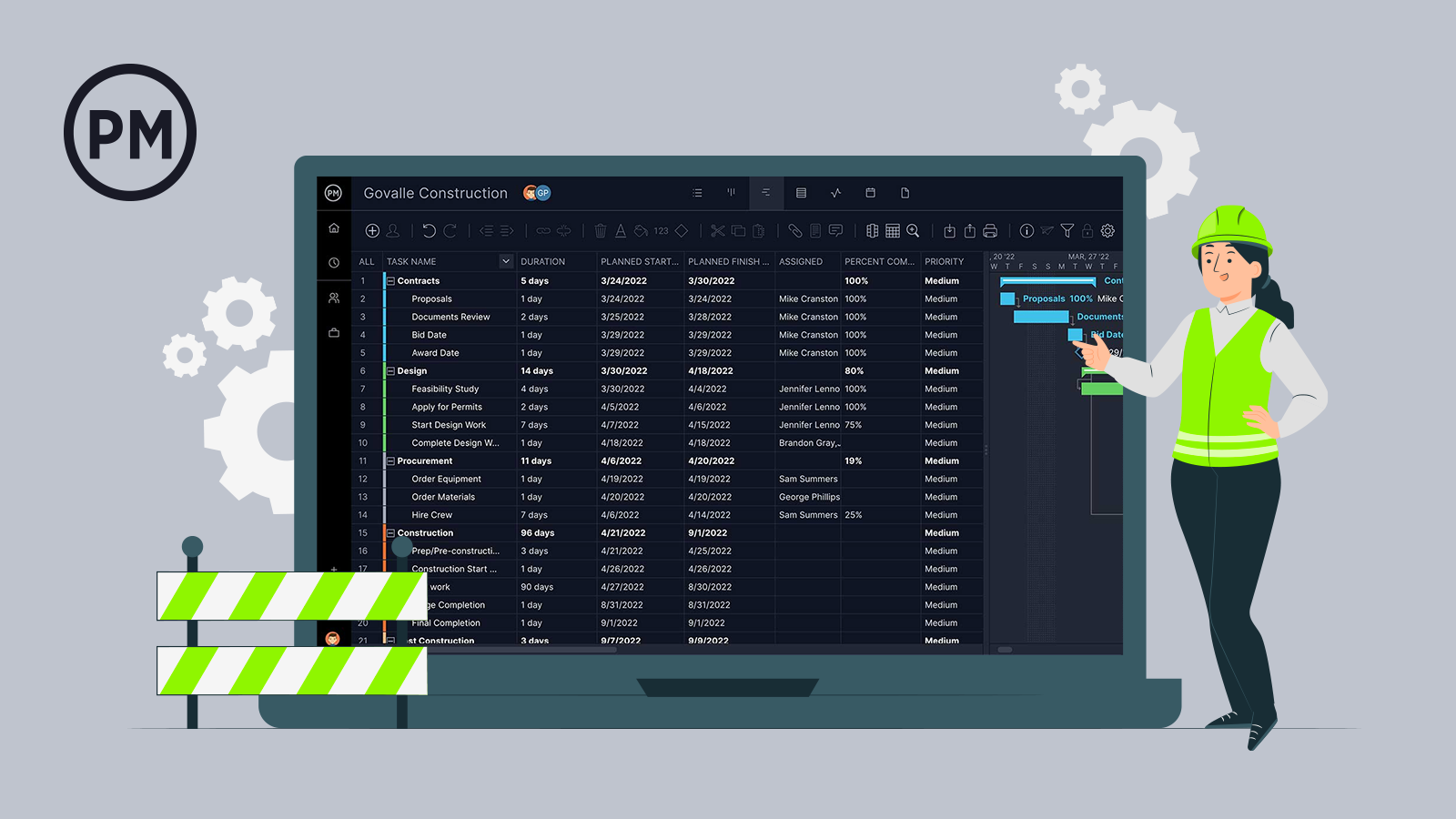
Get your free
Construction Schedule Template
Use this free Construction Schedule Template to manage your projects better.
2. Create a Construction Plan
Creating a comprehensive construction plan is essential for managing construction projects efficiently. The plan should outline the project scope, timeline, budget and resource allocation. Start by identifying key milestones, deliverables and potential risks. Include detailed schedules for labor, materials and equipment to avoid delays.
A construction plan also serves as a communication tool for stakeholders, ensuring everyone understands their roles and responsibilities. Incorporating contingency measures and quality control procedures helps prevent unexpected issues. By having a structured plan, project managers can track progress, adjust strategies and maintain project alignment, ultimately improving efficiency, reducing costs and ensuring timely project completion.
Project management software is essential for creating a construction plan. It allows project managers to map out the full scope of a project, assign tasks, schedule timelines and allocate resources efficiently. By providing a centralized platform, these tools make it easier to track milestones, monitor progress and adjust plans as needed. Visualization features like calendars, task boards and Gantt-style timelines help teams understand dependencies and critical paths, reducing the risk of delays. Additionally, integrated collaboration tools enable real-time updates, document sharing and communication, which keeps everyone aligned and ensures that the construction plan is executed smoothly from start to finish.
ProjectManager stands out as one of the best tools for creating construction plans due to its rich, detail-oriented features. Its Gantt chart functionality allows project managers to visualize complex schedules, set task dependencies and identify the critical path, ensuring deadlines are met. Beyond Gantt charts, our software offers resource management, time tracking, AI-powered reporting and timesheet capabilities, providing an overview of labor, costs and project progress.
This combination of advanced planning and real-time monitoring makes it particularly effective for managing construction projects, helping teams maintain efficiency, control budgets and deliver high-quality results on time. Get started with ProjectManager today for free
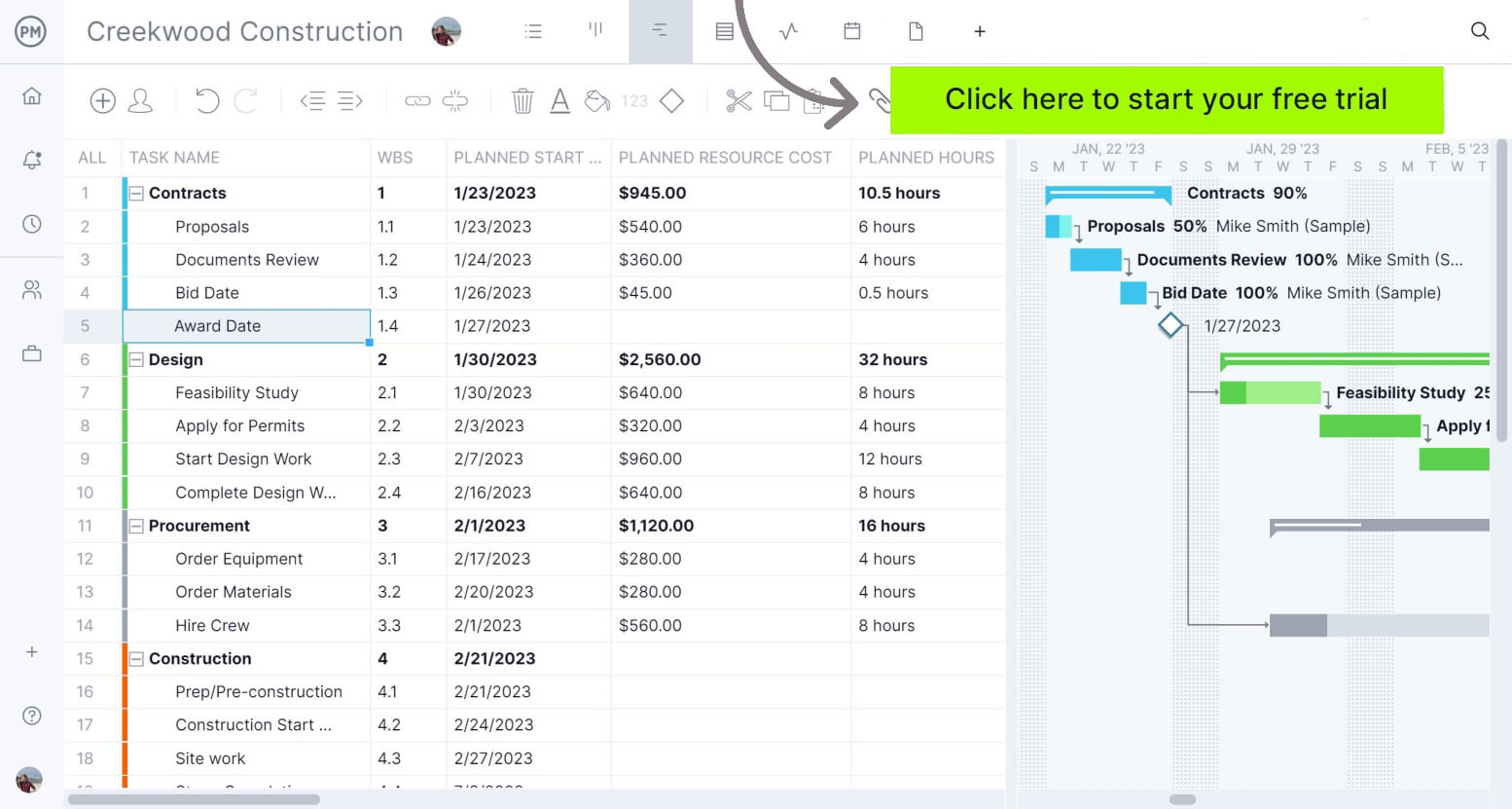
Construction Schedule
A construction schedule outlines all tasks, milestones and deadlines for the project. It helps coordinate labor, materials and equipment while ensuring each phase is completed on time. A detailed schedule provides visibility into dependencies and allows project managers to adjust timelines proactively. When managing construction projects, a clear schedule is essential for staying on track and minimizing delays.
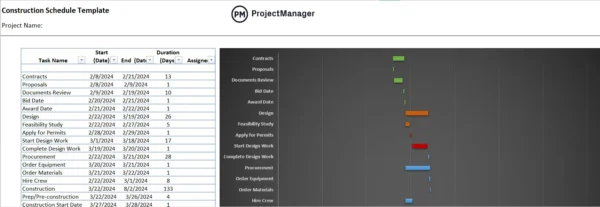
Construction Budget
The construction budget details all project costs, including labor, materials, equipment and contingencies. Accurate budgeting helps avoid overspending and ensures resources are allocated efficiently. By monitoring expenses closely, project managers can identify cost overruns early and make informed adjustments. A well-maintained budget is critical for managing construction projects within financial constraints.

Construction Scope of Work
The scope of work defines the tasks, deliverables and objectives of the project. It sets clear expectations for all stakeholders and helps prevent misunderstandings or scope creep. A detailed scope ensures that every aspect of the construction project is planned and accounted for, making execution smoother and more predictable.
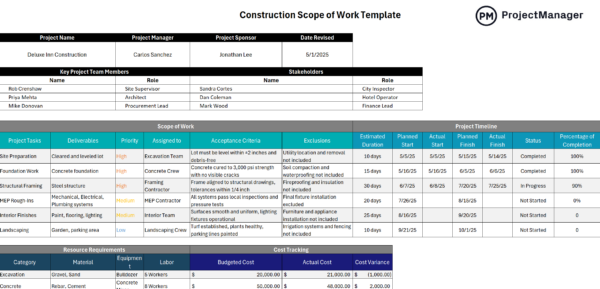
Risk Management Plan
A risk management plan identifies potential issues that could impact the project and outlines strategies to mitigate them. It includes contingency plans for delays, cost overruns or safety incidents. Proactively managing risks ensures that construction projects remain on schedule, within budget and safe for workers and stakeholders.
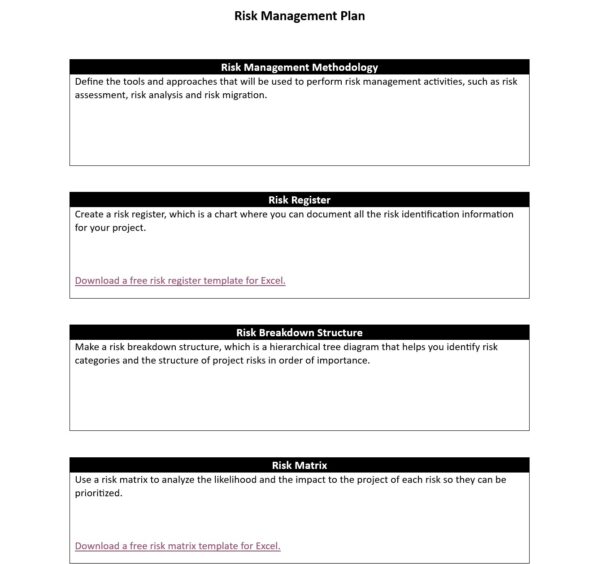
Change Management Plan
The change management plan establishes procedures for handling modifications to the project scope, schedule or budget. It ensures that changes are documented, approved and communicated to all stakeholders. Effective change management minimizes disruptions and maintains project alignment, which is essential for successfully managing construction projects.
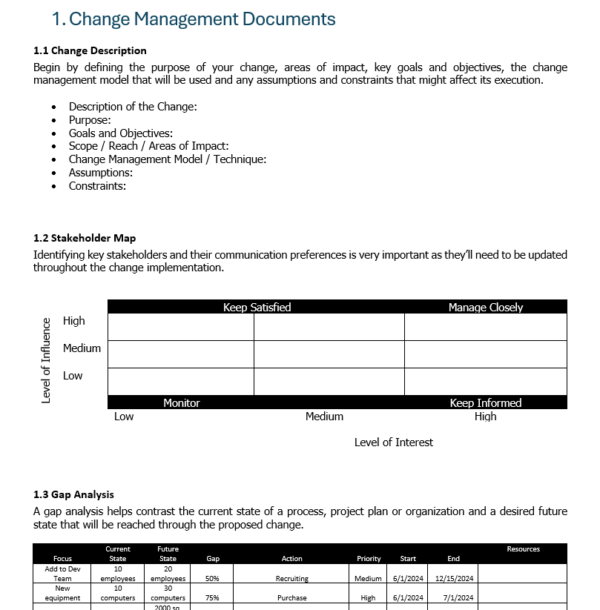
Resource Management Plan
A resource management plan tracks labor, equipment and materials to ensure they are used efficiently. It helps avoid overallocation, underutilization or shortages. By clearly defining roles and responsibilities, project managers can optimize team performance, improve productivity and maintain a smooth workflow throughout the construction project.
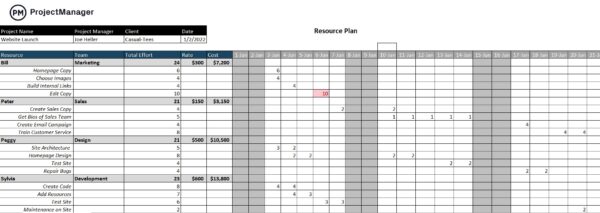
3. Obtain Permits and Approvals
Obtaining permits and approvals is a critical step in managing construction projects. These legal authorizations ensure that the project complies with local building codes, zoning regulations, environmental requirements and safety standards. Early permit acquisition prevents costly delays and penalties. Project managers must coordinate with government agencies, submit detailed applications and provide supporting documents.
Keeping track of all approvals ensures construction proceeds smoothly and meets regulatory obligations. Proper planning for permits also allows time for inspections and revisions. By addressing these requirements proactively, teams can avoid project interruptions and maintain progress according to schedule. Obtaining all necessary permits is essential for a compliant and successful construction project.
Building Permit
A building permit is required to ensure the construction complies with local building codes. It authorizes structural work and inspections. Securing this permit is essential to avoid legal penalties and project delays. Building permits confirm that construction meets safety and quality standards for managing construction projects efficiently.
Zoning Permit
Zoning permits confirm that the construction project aligns with local land-use regulations. They prevent building in restricted areas or violating community standards. Obtaining this permit ensures compliance with municipal requirements, helping project managers avoid fines or delays and maintain proper workflow while managing construction projects.
Environmental Permit
Environmental permits regulate construction activities that may impact the surrounding environment. They cover waste management, emissions, water use and habitat protection. Securing these permits ensures that construction projects comply with environmental laws, reduce ecological risks and maintain a sustainable approach to development.
Safety Permit
Safety permits verify that the construction project meets occupational health and safety standards. They are critical for protecting workers, visitors and the public. Obtaining safety permits ensures compliance with regulations, reduces accident risks and supports a safe working environment throughout the construction project.
Related: 20 Free Excel Construction Templates
4. Prepare the Construction Site
Preparing the construction site is a vital step in managing construction projects. Site preparation involves clearing the land, setting up temporary structures and ensuring access for equipment and workers. Proper preparation helps prevent delays, reduces safety hazards and provides an organized workspace. Project managers must plan for fencing, site offices, worker facilities, access roads, parking and material storage. Thorough site preparation enables smooth operations, efficient logistics and a controlled work environment. Addressing all site requirements before construction begins ensures that the project progresses according to schedule, minimizes disruptions and maintains quality standards for all phases of construction.
Fencing
Fencing secures the construction site, protecting workers, equipment and materials. It helps prevent unauthorized access and reduces theft or vandalism. Proper fencing ensures a safe and controlled environment, which is critical for managing construction projects efficiently and maintaining compliance with safety regulations.
Site Office
A site office serves as the central hub for project management on the construction site. It provides space for meetings, planning, documentation and communication. Having a dedicated site office improves coordination, ensures quick decision-making and supports efficient management of construction projects.
Worker Facilities
Worker facilities include rest areas, sanitation, changing rooms and break spaces. Providing adequate facilities ensures employee comfort, health and productivity. Properly equipped worker facilities support labor efficiency, reduce accidents and contribute to overall success when managing construction projects.
Access Roads & Parking
Access roads and parking ensure smooth transportation of workers, materials and equipment. Properly designed routes reduce congestion, delays and safety hazards. Organized access improves logistics, facilitates timely deliveries and supports efficient workflow for managing construction projects.
Material Storage & Equipment Staging
Material storage and equipment staging areas keep supplies organized and accessible. Proper planning prevents damage, loss or delays in construction activities. Organized storage and staging help project managers streamline operations, maintain schedules and manage construction projects effectively.
5. Manage Procurement and Logistics Activities
Managing procurement and logistics is a key part of managing construction projects. It involves selecting reliable suppliers, negotiating contracts and ensuring the timely delivery of materials and equipment. Proper logistics planning reduces delays, avoids resource shortages and maintains project flow. Project managers must coordinate shipments, track orders and monitor storage.
Efficient procurement and logistics planning also helps control costs, prevent waste and ensure that construction activities proceed according to schedule. By establishing clear processes for sourcing, purchasing and delivery, teams can minimize disruptions and maintain productivity.
Supplier Selection
Supplier selection involves evaluating potential vendors based on quality, reliability, price and delivery schedules. Choosing the right suppliers ensures timely access to materials and reduces risks of delays or defects. Effective selection supports smooth progress when managing construction projects.
Supplier and Subcontractor Contract Negotiation
Negotiating contracts with suppliers and subcontractors establishes clear expectations on scope, cost, deadlines and responsibilities. Well-structured contracts protect project interests, reduce disputes and improve collaboration. This is critical for managing construction projects efficiently.
Material Purchasing
Material purchasing ensures the right quantity and quality of construction supplies are available when needed. Proper purchasing prevents project delays, reduces waste and maintains budget control. Accurate procurement supports the timely execution of construction projects.
Equipment Rentals
Equipment rentals provide access to specialized machinery without long-term ownership costs. Proper planning ensures availability, reduces idle time and supports project efficiency. Managing rentals effectively helps maintain schedules and budgets in construction projects.
Related: 20 Best Construction Scheduling Software of 2025 (Free & Paid)
6. Track Progress and Control Costs
Tracking progress and controlling costs is essential for the successful management of construction projects. Regular monitoring ensures tasks are completed on time and within budget. Project managers use tools such as progress reports, status updates and budget tracking to identify deviations early and implement corrective actions. Cost control strategies help prevent overruns, optimize resource use and improve profitability.
Monitoring progress also supports communication with stakeholders and allows teams to adjust schedules, labor allocation and procurement plans as needed. By maintaining a consistent focus on progress and cost, project managers can ensure construction projects are completed efficiently, meet quality standards and deliver value while minimizing financial risk.
Progress Reports
Progress reports track task completion, milestones and project performance. They provide insight into schedule adherence and help project managers identify potential delays. Accurate reporting supports effective management of construction projects.
Status Reports
Status reports provide current updates on work completed, issues encountered and next steps. These reports keep stakeholders informed and enable timely decision-making. Regular status updates are crucial for managing construction projects effectively.
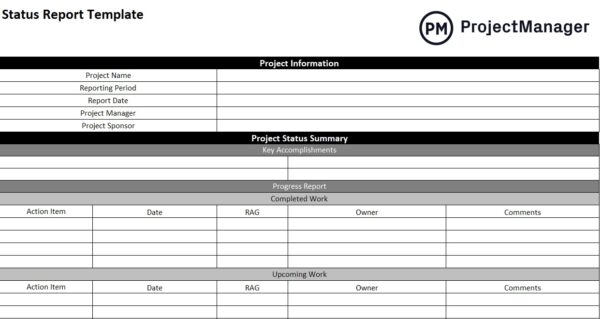
Budget Tracking
Budget tracking monitors expenditures against the planned budget. It helps identify cost overruns, ensures financial accountability and supports informed decision-making. Proper tracking is essential for controlling expenses in construction projects.
Related: 13 Budget Templates for Business & Project Budgeting
7. Perform Inspections and Quality Assurance
Inspections and quality assurance ensure that construction projects meet design specifications, regulatory requirements and safety standards. Regular site inspections identify issues early, reducing rework and maintaining compliance. Project managers monitor adherence to building codes and enforce quality standards. Implementing quality assurance processes improves project outcomes, enhances client satisfaction and minimizes risks. By systematically reviewing work at each phase, teams can detect deviations, correct errors and maintain high standards.
Quality assurance also supports documentation for regulatory compliance and facilitates smooth project handover. Integrating inspections into project workflows ensures that construction projects are delivered safely, efficiently and to the expected quality levels.
Related: Project Handover Template
Site Inspections
Site inspections assess construction progress, verify compliance with plans and identify potential issues. Regular inspections help prevent delays, reduce safety risks and ensure quality work. They are essential for managing construction projects effectively.
Building Code Compliance
Ensuring building code compliance guarantees that construction meets legal and safety requirements. Adhering to codes reduces the risk of fines or rework. Compliance is a key aspect of managing construction projects responsibly.
Quality Standards
Quality standards define the expectations for materials, workmanship and overall construction. Enforcing these standards ensures durability, safety and client satisfaction. Maintaining quality is crucial when managing construction projects.
Related: Construction Quality Control: Essential Tips for Managing Quality
8. Complete Final Handover
The final handover phase is critical in managing construction projects. It involves verifying that the project is complete, operational and meets all contractual obligations. Project managers conduct site walkthroughs, provide operations manuals and deliver warranty documents to clients. This stage ensures that the client can take possession confidently and that all systems function properly.
Proper handover reduces post-construction issues and supports client satisfaction. Documentation and training provided during handover facilitate smooth operations and maintenance. Completing the handover thoroughly confirms that the project is finished according to specifications, regulations and quality standards. This final step solidifies the success of the construction project and strengthens stakeholder trust.
Site Walkthrough
A site walkthrough verifies that all construction work is complete and meets specifications. It identifies any final corrections before client handover. Walkthroughs ensure quality and readiness in managing construction projects.
Operations Manuals
Operations manuals guide the use, maintenance and troubleshooting of building systems. They ensure the client can operate the facility efficiently. Manuals are essential for a successful construction project handover.
Warranty Documents
Warranty documents outline coverage for materials, equipment and workmanship. They protect clients against defects and ensure accountability. Providing these documents supports long-term success when managing construction projects.
9. Close the Project
Closing a construction project involves finalizing all activities, documenting lessons learned and completing financial and contractual obligations. Project managers verify that work is complete, payments are settled and all documentation is archived. Closing procedures ensure accountability, support audits and provide valuable insights for future projects. Evaluating successes and challenges allows teams to improve processes, refine planning and enhance efficiency. Proper project closure confirms that deliverables meet specifications and stakeholder expectations. By completing this phase diligently, construction projects conclude smoothly, with satisfied clients, controlled costs and documented best practices that inform the management of future construction projects.
Contract Closeout
Contract closeout confirms that all contractual obligations with suppliers, subcontractors and stakeholders are fulfilled. It includes final payments, releases and documentation. Proper closeout ensures accountability and smooth project completion.
Final Accounts
Final accounts summarize project expenses, payments and remaining balances. They provide financial clarity, confirm budget adherence and help prevent disputes. Accurate accounts are crucial when managing construction projects.
Lessons Learned
Documenting lessons learned captures successes, challenges and insights from the project. This knowledge improves future planning, enhances team performance and supports continuous improvement. Lessons learned are invaluable for managing construction projects efficiently.

Free Templates for Managing Construction Projects
Using templates can simplify managing construction projects by providing ready-made structures for planning, tracking and reporting. Templates help save time, reduce errors and ensure consistency across all project documentation. They are especially useful for new project managers or teams handling multiple projects simultaneously, as they provide clear guidance and organization for essential tasks.
Construction Scope of Work Template
This template outlines all project tasks, deliverables and responsibilities. It ensures everyone understands their roles and prevents scope creep. Using a scope of work template helps project managers clearly define objectives, timelines and expectations for managing construction projects efficiently.
Construction Budget Template
A construction budget template tracks expenses, labor, materials and contingencies. It helps maintain financial control and ensures that costs stay within plan. By using this template, project managers can easily monitor spending and make informed decisions while managing construction projects.
Construction Daily Report Template
This template records daily construction activities, progress, issues and resource usage. Daily reports provide transparency, facilitate communication and help identify problems early. Using a daily report template supports efficient workflow and effective management of construction projects.
Managing Construction Projects With ProjectManager
ProjectManager is a powerful tool for managing construction projects, offering multiple project views that make planning and execution more efficient. From Gantt charts and dashboards to kanban boards and lists, these views allow teams to see tasks in the format that works best for them. The list view is particularly useful for monitoring daily activities, task assignments and progress at a glance, helping project managers stay organized and in control throughout the construction process.
Learn more about how our software can help you manage construction projects by watching this brief video below.
Optimize Resource Management With Feature-Rich Tools
ProjectManager makes managing construction projects easier by providing powerful tools for resource management. The workload chart visualizes team capacity and identifies overallocated or underutilized resources. The team page allows managers to assign tasks, track availability and monitor productivity in real time. These features help project managers allocate labor, equipment and materials efficiently, reducing delays, preventing bottlenecks and ensuring the project stays on schedule while maximizing team performance.
Track Progress, Generate Reports and Manage Timesheets Effectively
Tracking progress, generating reports and managing timesheets are all streamlined in ProjectManager. Detailed dashboards offer real-time insights into project status, while built-in reporting tools powered by AI enable the creation of customizable charts and summaries for stakeholders. Timesheets allow accurate labor tracking and cost monitoring. These features provide project managers with the data they need to control budgets, evaluate performance, and make informed decisions, thereby enhancing overall efficiency in managing construction projects.
Related Construction Project Management Content
There’s more to managing construction projects than outlined above. For readers who are interested in learning more, check out the links below. They define different types of construction projects, methods and techniques, among other things.
- 10 Types of Construction Projects with Examples
- 18 Construction Methods and Techniques
- Construction Contingency: A Quick Guide
- Critical Path Method (CPM) in Construction: A Quick Guide
- 8 Free Construction Forms for Excel and Word
- 14 Types of Construction Contracts: Pros, Cons & Best Practices
ProjectManager is online project and portfolio management software that connects teams, whether they’re in the office or on the job site. They can share files, comment at the task level and stay up to date with email and in-app notifications. Get started with ProjectManager today for free.
The post Managing Construction Projects: Step-by-Step Guide appeared first on ProjectManager.
